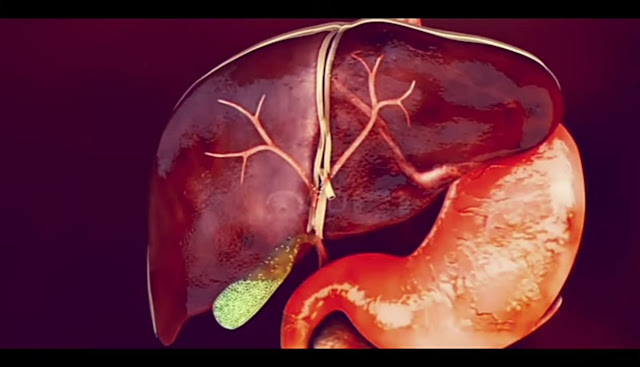10 Symptoms of Fatty Liver, Causes, Food and Treatment
Liver Function, Fatty Liver, Causes, Food &Treatment
What are the Functions of a liver?
The liver is a vital organ in the human body responsible for numerous functions crucial for overall health and well-being. A few key functions of the liver include:1. Detoxification:The liver plays a central role in detoxifying harmful substances, such as drugs, alcohol, and toxins, by breaking them down and converting them into less harmful forms that can be eliminated from the body.2. Protein Synthesis:The liver is involved in the production of various proteins, including blood clotting factors, albumin (a protein that helps maintain fluid balance in the body), and enzymes necessary for digestion.3. Bile productionBile, a greenish-yellow fluid made by the liver, helps with fat digestion and absorption. Bile is discharged into the small intestine from the gallbladder where it is stored when necessary.4. Carbohydrate Metabolism:The liver helps regulate blood sugar levels by storing excess glucose as glycogen and releasing it when blood sugar levels drop. It also converts other sources, such as amino acids and fats, into glucose when necessary.5. Fat Metabolism: The liver is involved in the synthesis and breakdown of fats. It produces cholesterol and triglycerides and helps transport fats in the bloodstream for energy production or storage.6. Storage of Vitamins and Minerals:The liver stores vitamins (such as A, D, E, K, and B12) and minerals (such as iron and copper) for later use by the body.7. Regulation of cholesterol:The liver plays a key role in maintaining cholesterol balance by producing cholesterol as needed and removing excess cholesterol from the blood.8. Immune Function:The liver is an essential component of the immune system. It helps remove bacteria, viruses, and other pathogens from the bloodstream and produces immune factors to fight infection.9. Metabolism of drugs and hormones:The liver metabolizes drugs, medications, and hormones, including those produced by the body, to ensure their proper breakdown and elimination.10. Storage and Recycling of Red Blood Cells:The liver stores a reserve of blood and can break down old or damaged red blood cells, recycling their components.These are only a handful of the numerous crucial tasks that the liver carries out. It is a complex organ that plays a critical role in maintaining overall health and metabolic balance within the body.What is Fatty Liver?
Fatty liver, also known as hepatic steatosis, is a condition characterized by excessive fat accumulation in the liver. It occurs when triglycerides (a type of fat) abnormally build up within liver cells. Two primary forms of fatty liver can be distinguished:\
1. Non-alcoholic fatty liver disease (NAFLD):This kind of fatty liver affects those who don't drink too much alcohol. Obesity, insulin resistance, type 2 diabetes, elevated cholesterol, and metabolic syndrome are all frequently linked to NAFLD. It is regarded as one of the most prevalent liver conditions worldwide.2. Alcoholic fatty liver disease:This type of fatty liver is caused by excessive alcohol consumption over a prolonged period. The liver is responsible for metabolizing alcohol, and heavy drinking can accumulate fat in liver cells.Both types of fatty liver can progress to more severe conditions if left untreated.If inflammation and liver cell damage occur in addition to fat accumulation, it may lead to non-alcoholic steatohepatitis (NASH) or alcoholic steatohepatitis, respectively.If not managed properly, these conditions can progress to liver fibrosis (scarring), cirrhosis (severe scarring), and even liver failure.Symptoms and Treatment
Fatty liver is often asymptomatic in its early stages, and many people with the condition may not experience any noticeable symptoms. However, as the disease progresses, some individuals may begin to experience symptoms such a1. Fatigue: Having an excessively low level of energy.2. Abdominal discomfort: Mild pain or discomfort in the upper right abdomen. This is the first generalized sign and loss of appetite. The next important sign is fluid accumulation in the abdomen in medical terms it is called ascites this accumulation of fluid is also responsible for abdominal pain fullness nausea bloating and sometimes difficulty in breathing.3. Weight Loss: The next noticeable thing is weight loss without trying it could be due to many other reasons so evaluate other warning signs also if there is an unintentional weight loss.4. Muscle Wasting: Muscle wasting is considered one of the Major complications of end-stage liver disease and its incidence increases along with disease progression it is found in approximately 40 percent of patients with cirrhosis.
5. Jaundice Liver: Jaundice is a condition that causes your skin and the whites of your eyes to turn yellow. Jaundice is caused by abnormal liver function and an excessive buildup of bilirubin under the skin. Liver cells are involved in the synthesis of most blood coagulation factors, including fibrinogen, prothrombin factor 5/7, prothrombin factor 9/10, and proteins c and s, which aid in blood clotting.6. Spider Angioma or Spider Telangiectasia :The decreased generation of coagulation factors caused by fatty liver can lead to easy bruising or bleeding as well as spider angiomas or spider telangiectasia, which are web-like clusters of blood vessels under the skin.The lesion is painless and can be observed in many other illnesses, such as thyrotoxicosis, rheumatoid arthritis, and pregnancy, but it has a center red spot and a reddish extension that radiates outwards like a spider's web.With a 95% specificity, many spider angiomas are a sign of chronic liver disease.
Fish
Numerous studies demonstrate how omega-3 fatty acids can improve liver health. Omega-3 fatty acids lessen liver inflammation, liver enzyme levels, and liver fats. When it comes to omega-3s, some fish varieties are preferable to others for improving liver function, lowering levels of liver enzymes, and reducing inflammation.
Salmon, trout, and tuna are among the fish varieties with the highest concentrations of omega-3 fatty acids, which are known to improve liver health. Supplements with fish oil can also be a good choice. Just make sure to consult your physician or other healthcare provider. superfood in the world because of the many health advantages it can offer people.
Olive Oil
Superfood in the world because of the many health advantages it can offer people. Eating a high-fat item like olive oil to treat a cold may seem counterproductive. Having said that, olive oil offers significant advantages for preventing and treating obesity and fatty liver.
One of the most prevalent causes of fatty liver disease. A study discovered that lower incidences of obesity and fatty liver disease were observed in people who regularly consume olive oil.
compared to those who don't, research demonstrates that increasing your use of olive oil can also reduce your liver enzyme levels.
Green tea
A research review found that green tea is linked to weight loss and improved liver health when you consume five to ten cups per day, which is a lot of green tea to drink in one day. However, even consuming just one or two cups per day has been shown to improve liver health.
Studies have shown that green tea may reduce fat absorption throughout the body, which can help prevent or reduce fatty liver. It's also a good source of catechin, an antioxidant that may be beneficial for fatty liver disease.
Coffee
With that said, thankfully, coffee does offer some other health benefits too including liver protection. A study found that people who drink one or two cups of coffee a day have a lower prevalence of fatty liver disease than non-coffee drinkers. This is because research suggests that coffee helps to protect the intestinal barrier which keeps harmful bacteria from entering the body.
Broccoli
The key component of broccoli that you should be aware of is sulforaphane, a compound that can reduce inflammation, boost antioxidant defenses, and reduce liver enzymes. Including healthy vegetables in your diet is obviously beneficial for your overall health, but you should also know that they're beneficial for your liver, and this most definitely includes broccoli.
Other cruciferous vegetables, like as cabbage, Brussels sprouts, and Bok choy, are also excellent providers of sorcery renown.
Walnuts
Omega-3 fatty acids, which can lower liver fat and help regulate liver enzyme levels, are also abundant in walnuts and salmon. All tree nuts contain good fats, but walnuts stand out for having a particularly high amount of omega-3s, making them one of the best choices for those with fatty liver disease.
Whey Protein
Whey protein supplements make it simple to increase your protein intake while also fighting fatty liver disease. Despite the fact that this was a small trial, obese women who used daily whey protein supplements for four weeks showed a significant reduction in liver fat.
There is additional evidence linking whey protein to a healthy liver. You can eat foods that include whey protein to support liver function, such as eggs, milk, yogurt, and cottage cheese. Additionally, whey protein supplements are available.
Avocado
Research indicates that those who eat more avocados tend to have a lower risk of fatty liver disease. You should also be aware that they contain anti-inflammatory properties which can reduce the risk of liver damage.
They also contain plenty of healthy fats that help keep you satiated and prevent overeating. They are also high in fiber, another feeling ingredient that's linked to weight management.
Oatmeal
Though oatmeal may not directly affect the liver, it is a great food for weight loss, and keeping a healthy weight is one of the best things you can do to prevent fatty liver disease. Oatmeal is a good amount of fiber, which slows down digestion and makes you feel fuller for longer.
It also contains carbs, which are a stable supply of energy without having the bad effects of certain other grains. To optimize your liver health, avoid refined grains like white bread and white rice because they are associated with an increase in fatty liver disease.
Instead of toast or cereal for breakfast, try a bowl of healthy oats.
Conclusion:
A common illness that requires careful control is fatty liver. You may take charge of your liver health by being aware of the symptoms, making lifestyle adjustments, and adhering to a diet that is suitable for those with fatty livers.
Keep in mind that a qualified dietician or healthcare expert can offer individualized advice based on your unique needs. You can promote the health of your liver and create the path for a healthy future with the correct strategy and a focus on wholesome, nutrient-rich foods.







Comments
Post a Comment